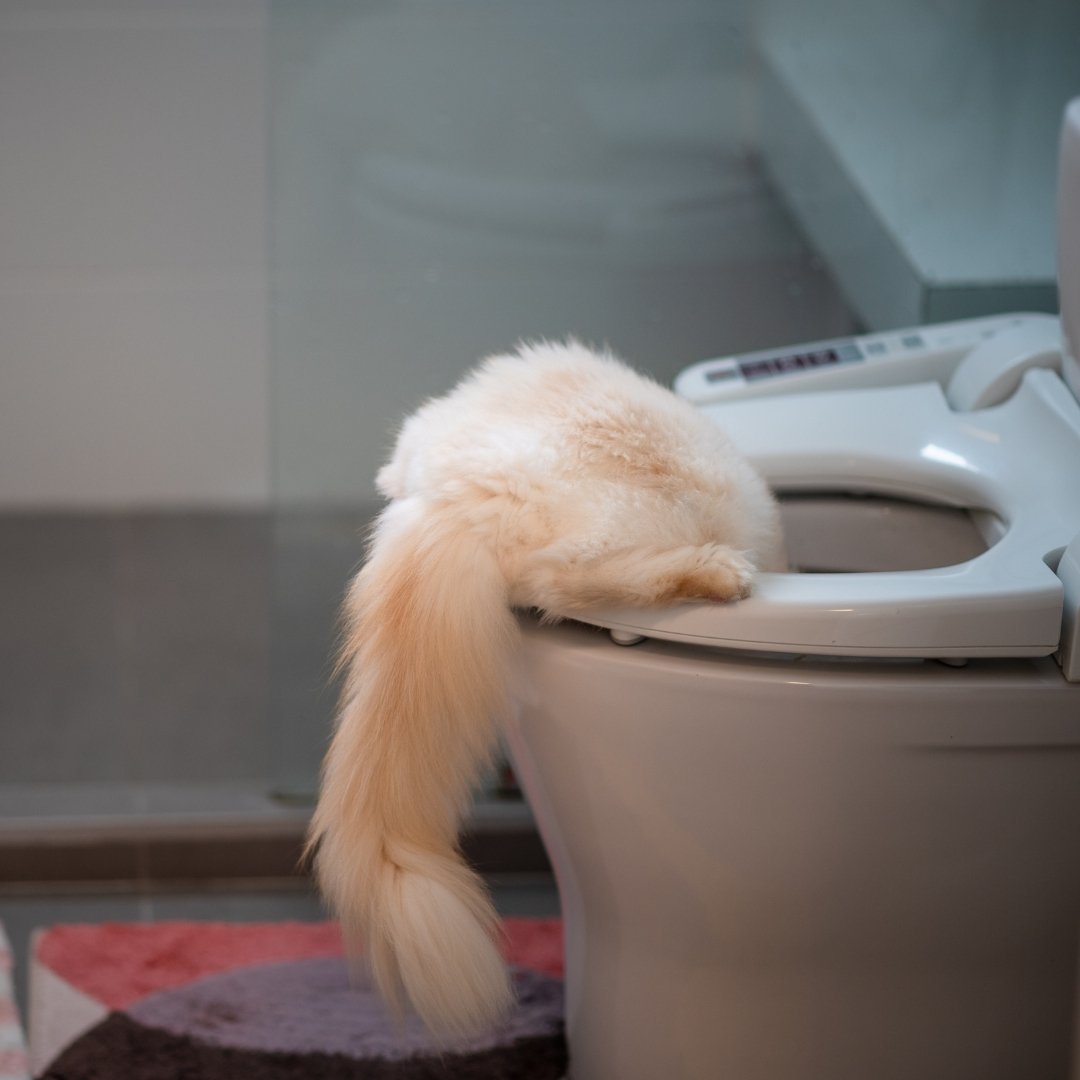Reasons Flushing Cat Poop Down Your Toilet Isn't a Good Idea - Advice for Safer Disposal
Reasons Flushing Cat Poop Down Your Toilet Isn't a Good Idea - Advice for Safer Disposal
Blog Article
We have stumbled upon this great article relating to Don’t flush cat feces down the toilet down the page on the web and think it made good sense to discuss it with you in this article.

Intro
As feline proprietors, it's important to be mindful of just how we get rid of our feline buddies' waste. While it might seem hassle-free to flush feline poop down the commode, this method can have destructive consequences for both the atmosphere and human wellness.
Environmental Impact
Flushing pet cat poop presents hazardous microorganisms and bloodsuckers right into the supply of water, presenting a substantial threat to marine ecosystems. These contaminants can negatively affect marine life and compromise water high quality.
Health and wellness Risks
In addition to environmental concerns, flushing cat waste can additionally posture wellness threats to people. Cat feces may contain Toxoplasma gondii, a bloodsucker that can cause toxoplasmosis-- a potentially serious health problem, particularly for expectant ladies and individuals with damaged immune systems.
Alternatives to Flushing
The good news is, there are much safer and a lot more liable ways to throw away feline poop. Think about the complying with options:
1. Scoop and Dispose in Trash
The most common approach of dealing with cat poop is to scoop it right into a naturally degradable bag and throw it in the trash. Make sure to use a dedicated trash scoop and take care of the waste quickly.
2. Usage Biodegradable Litter
Opt for eco-friendly cat trash made from products such as corn or wheat. These litters are environmentally friendly and can be securely gotten rid of in the garbage.
3. Bury in the Yard
If you have a backyard, take into consideration burying cat waste in a designated location away from veggie yards and water sources. Make certain to dig deep adequate to avoid contamination of groundwater.
4. Install a Pet Waste Disposal System
Purchase an animal waste disposal system particularly developed for pet cat waste. These systems utilize enzymes to break down the waste, reducing smell and environmental influence.
Conclusion
Accountable pet ownership expands past offering food and sanctuary-- it likewise involves correct waste management. By avoiding flushing feline poop down the toilet and selecting alternative disposal methods, we can decrease our environmental footprint and shield human health.
Why You Should Never Flush Cat Poop Down the Toilet
A rose by any other name might smell as sweet, but not all poop is created equal. Toilets, and our sewage systems, are designed for human excrement, not animal waste. It might seem like it couldn’t hurt to toss cat feces into the loo, but it’s not a good idea to flush cat poop in the toilet.
First and foremost, assuming your cat uses a litter box, any waste is going to have litter on it. And even the smallest amount of litter can wreak havoc on plumbing.
Over time, small amounts build up, filling up your septic system. Most litter sold today is clumping; it is made from a type of clay that hardens when it gets wet. Ever tried to scrape old clumps from the bottom of a litter box? You know just how cement-hard it can get!
Now imagine just a small clump of that stuck in your pipes. A simple de-clogger like Drano isn’t going to cut it. And that means it’s going to cost you big time to fix it.
Parasitic Contamination
Believe it or not, your healthy kitty may be harboring a nasty parasite. Only cats excrete Toxoplasma in their feces. Yet it rarely causes serious health issues in the cats that are infected. Most people will be fine too if infected. Only pregnant women and people with compromised immune systems are at risk. (If you’ve ever heard how women who are expecting are excused from litter cleaning duty, Toxoplasma is why.)
But other animals may have a problem if infected with the parasite. And human water treatment systems aren’t designed to handle it. As a result, the systems don’t remove the parasite before discharging wastewater into local waterways. Fish, shellfish, and other marine life — otters in particular — are susceptible to toxoplasma. If exposed, most will end up with brain damage and many will die.
Depending on the species of fish, they may end up on someone’s fish hook and, ultimately on someone’s dinner plate. If that someone has a chronic illness, they’re at risk.
Skip the Toilet Training
We know there are folks out there who like to toilet train their cats. And we give them props, it takes a lot of work. But thanks to the toxoplasma, it’s not a good idea.

As a devoted person who reads about Can You Flush Cat Poo or Litter Down the Toilet?, I was thinking sharing that topic was a good thing. Enjoyed our review? Please share it. Let someone else locate it. Thanks a lot for your time. Please check our blog back soon.
Click Here Report this page